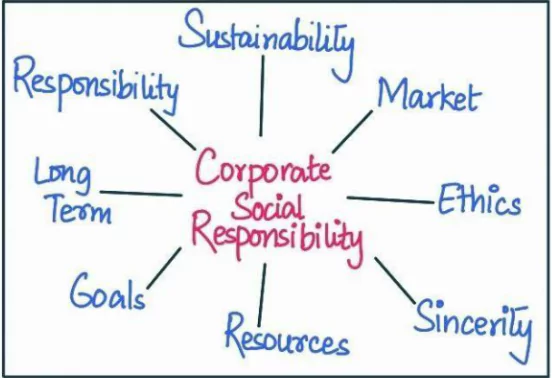Answer:
|
How to approach the question
- Introduction
- Write about Corporate Social Responsibility (CSR) briefly
- Body
- Write the effectiveness of CSR in promoting ethical behaviour, sustainable business practices, philanthropy, and community engagement.
- Write the potential challenges and criticisms associated with CSR.
- Conclusion
- Give appropriate conclusion in this regard
|
Introduction
Corporate Social Responsibility (CSR) involves integrating social and environmental concerns into their business practices and how they interact with their stakeholders, such as employees, customers, and the community. In India, CSR is guided by Section 135 of the Companies Act, 2013.
Body
Effectiveness of CSR in promoting ethical behaviour, sustainable business practices, philanthropy, and community engagement :

- Ethical Behaviour: For example, Tata Group’s Code of Conduct emphasizes honesty, fairness, and ethical behaviour across its diverse businesses.
- Sustainable Business Practices: CSR drives companies to adopt sustainable practices. Hindustan Unilever Limited’s Sustainable Living Plan focuses on environmental sustainability through water conservation and waste management.
- Philanthropy: CSR fosters philanthropic activities, enabling companies to contribute to social causes. Reliance Foundation has undertaken various philanthropic initiatives in healthcare, education, and rural development, benefiting millions of people.
- Community Engagement: For instance, ITC Limited’s e-Choupal initiative engages rural farmers by providing them with real-time agricultural information, fair prices, and access to markets.
- Employee Welfare: CSR emphasizes employee welfare and well-being, fostering a positive work culture and employee satisfaction. Infosys, through its Employee Assistance Program, provides support and counseling services to employees.
- Diversity and Inclusion: CSR supports diversity and inclusion initiatives, promoting equal opportunities and combating discrimination. Accenture’s “Getting to Equal” program advocates for gender equality and empowers women in the workplace.
- Education and Skill Development: CSR initiatives invest in education and skill development programs, empowering individuals. The Azim Premji Foundation works towards improving the quality of education in rural India.
- Social Innovation: CSR encourages companies to invest in R&D to develop innovative solutions. Mahindra & Mahindra’s “Spark the Rise” platform supports social entrepreneurs and innovators, driving positive change in society.
Potential challenges and criticisms associated with CSR
- Greenwashing: As companies engage in superficial or deceptive CSR practices to create a positive image. For example, a company may promote its support for environmental causes while continuing to engage in harmful practices.
- Lack of Accountability: Companies may not provide sufficient information or measurable outcomes regarding their CSR activities, making it difficult to assess their true impact. This can lead to scepticism and doubt regarding the sincerity of their efforts.
- Inadequate Implementation: Majority of companies focus on education, health in their CSR activities.
- Tokenism: An example would be a company donating a small amount to a charitable cause without addressing the underlying issues or systemic problems.
- Inequality and Unbalanced Focus: Some companies focus on popular or high-profile CSR initiatives while neglecting fundamental issues, such as labour rights or fair wages. This creates an imbalance and perpetuates social and economic inequalities.
- Conflict of Interest: CSR initiatives can face criticism if they are driven by conflicts of interest. For example, a tobacco company sponsoring a health awareness campaign may be seen as contradictory and hypocritical.
Way Forward
- Injeti Srinivas Committee recommendations: Balancing local area preferences with national priorities, Registration of implementation agencies on MCA Portal, allowing CSR in social benefit bonds etc.
- Annual awards: Annual awards for incentivizing companies to take up CSR activities be set up as recommended by Anil Baijal Committee.
- Enhancing accountability and reporting: Implement mechanisms to ensure companies fulfill their CSR obligations effectively. This can include regular audits, independent evaluations, and public disclosure of CSR expenditure and outcomes.
- Collaboration: Companies should engage with local NGOs for understanding ground situations and also utilise their expertise in that field.
Conclusion
By implementing these measures, India can address the challenges and criticisms associated with CSR, ensuring that it becomes a powerful tool for sustainable development and social progress in the country.
To get PDF version, Please click on "Print PDF" button.



https://uploads.disquscdn.com/images/57af6dd9185ee5cba2e0c1cd4b96f4cbe388e35798ffc015bfc9b744b48902d2.jpg https://uploads.disquscdn.com/images/2a10f17f0a57473ebcb858fd92fb7aab3371ce91837ce172554921f98afe3286.jpg